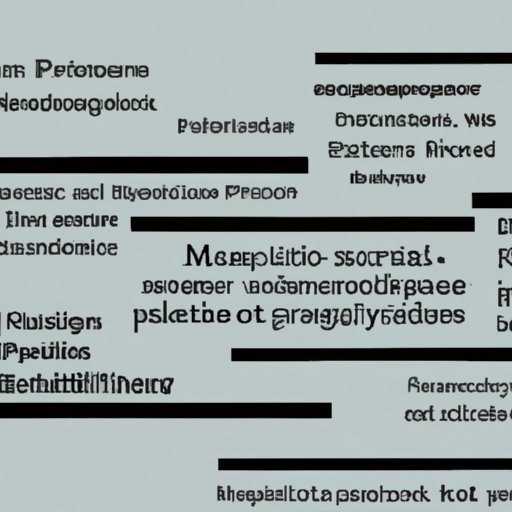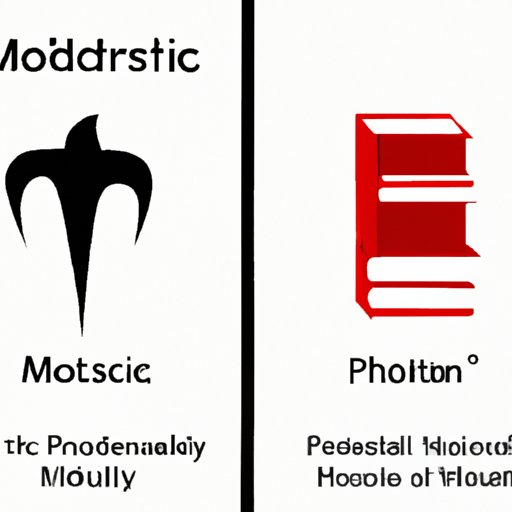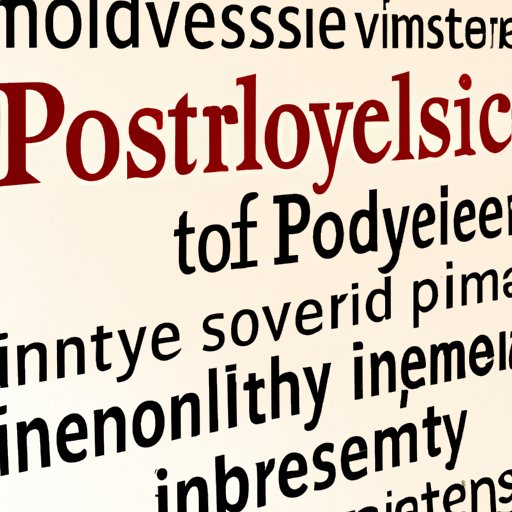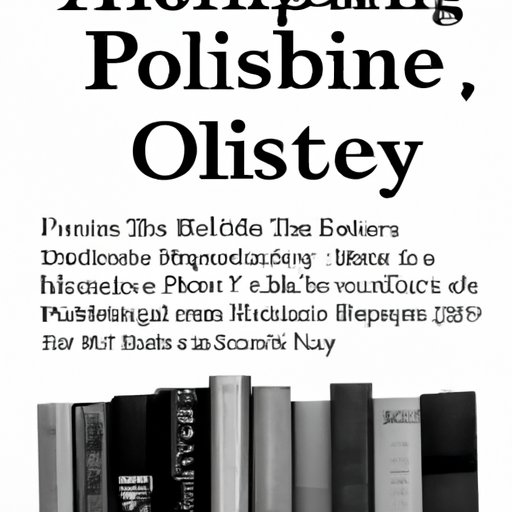Introduction
Postmodern literature is a term used to describe literature that emerged in the mid-20th century as a response to traditional literature. It is characterized by a rejection of traditional storytelling conventions and an embrace of experimentation, irony, and intertextuality. This article will explore postmodern literature in detail, including its themes, styles, and impact on contemporary society.
An Overview of Postmodern Literature
Postmodern literature is often seen as a reaction against the conventions of traditional literature. It is characterized by a rejection of linear narratives, an emphasis on self-reflexivity, and an exploration of the relationship between the author and reader. Postmodern literature also often features absurdist elements, surrealism, and dark humor. It is often seen as a form of literary rebellion, as it challenges readers to think outside of the box and consider alternative perspectives.

Exploring the Themes and Styles of Postmodern Literature
Postmodern literature often focuses on themes such as identity, alienation, and the absurdity of life. It also often features characters who are searching for meaning in a chaotic world. Notable styles of postmodern literature include metafiction, which uses narrative techniques to call attention to the artifice of storytelling; stream-of-consciousness writing, which attempts to capture the inner thoughts and feelings of characters; and magic realism, which combines fantasy elements with realistic storytelling.

A Comparison of Postmodernism and Modernism in Literature
Postmodernism and modernism are two distinct literary movements that emerged in the 20th century. They share certain similarities, such as an emphasis on experimentation and a focus on the individual experience. However, they also differ in some key ways. While modernism sought to break away from traditional forms of literature, postmodernism focused on rejecting established conventions. Additionally, while modernism was often concerned with exploring the human psyche, postmodernism often dealt with themes related to consumer culture and the media.

Examining the Impact of Postmodern Literature on Contemporary Society
Postmodern literature has had a lasting impact on contemporary society. It has challenged traditional notions of narrative structure, allowing for new ways of telling stories and expressing ideas. Additionally, it has provided a platform for marginalized voices to be heard and explored themes related to gender, race, and class. Finally, postmodern literature has helped to shape popular culture, influencing film, art, and music.
Analyzing the Characteristics of Postmodern Literature
Postmodern literature is known for its distinctive narrative style, which often involves non-linear storytelling and unconventional plot structures. Additionally, postmodern literature often employs experimental techniques such as fragmentation, juxtaposition, and parody. These techniques are designed to challenge the reader and force them to consider the text in new and unexpected ways.

A History of Postmodern Literature
Postmodern literature began to emerge in the 1950s, with the works of authors such as William S. Burroughs, Kurt Vonnegut, and Thomas Pynchon. In the 1960s and 1970s, the movement gained momentum, with the works of authors such as Margaret Atwood, Toni Morrison, and Don DeLillo. In the 1980s and 1990s, postmodern literature became increasingly popular, with the works of authors such as David Foster Wallace, Zadie Smith, and J.M. Coetzee gaining critical acclaim.
Appreciating the Influence of Postmodern Literature on Cultural Movements
Postmodern literature has had a profound influence on various cultural movements. It has inspired artists to experiment with form and content, and has provided a platform for marginalized voices to be heard. Additionally, postmodern literature has helped to shape popular culture, influencing films, television shows, and music. Finally, it has helped to foster a greater appreciation for the power of storytelling and the potential of literature to create meaningful social change.
Conclusion
In conclusion, this article has explored postmodern literature in detail, examining its themes, styles, and impact on contemporary society. It has highlighted the similarities between postmodernism and modernism, and discussed the characteristics of postmodern literature, such as its narrative style and experimental techniques. Finally, it has examined the history of postmodern literature, and discussed its influence on various cultural movements. Postmodern literature has shaped our understanding of narrative structure, and has encouraged readers to consider alternative perspectives.
(Note: Is this article not meeting your expectations? Do you have knowledge or insights to share? Unlock new opportunities and expand your reach by joining our authors team. Click Registration to join us and share your expertise with our readers.)
